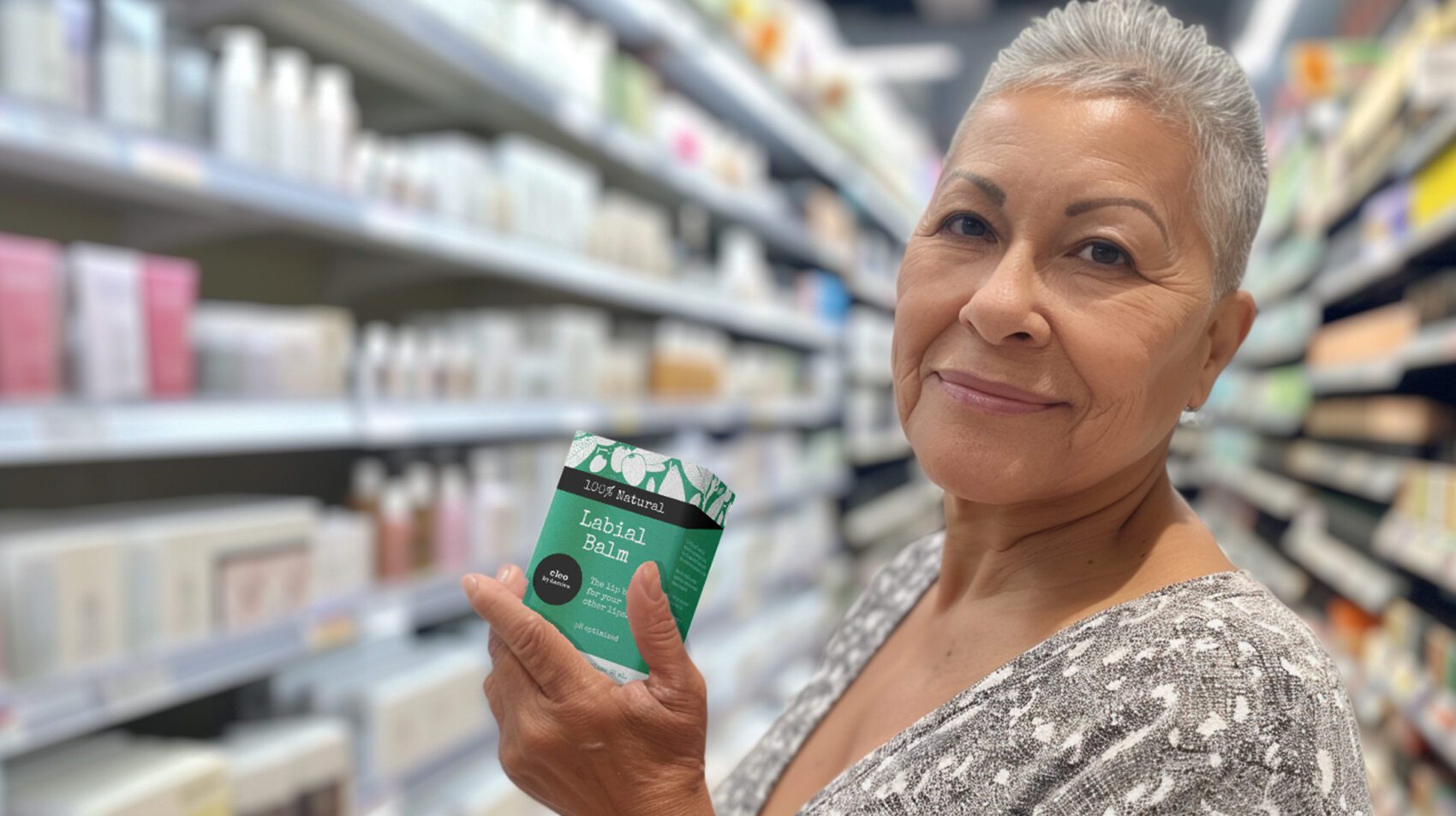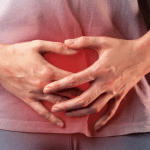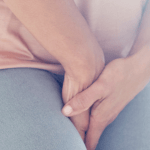
Introduction
Understanding Menopause and Incontinence
Menopause marks a significant transition in a woman’s life, typically occurring in the late 40s to early 50s, where the end of menstrual cycles signifies the cessation of reproductive ability. This natural biological process brings about a myriad of changes due to hormonal fluctuations, particularly the decline in estrogen production. One of the less frequently discussed but impactful symptoms of menopause is urinary incontinence, a condition characterized by the involuntary leakage of urine. Incontinence during menopause can manifest as stress incontinence, urge incontinence, or a combination of both, often exacerbated by the weakening of pelvic floor muscles and changes in the urinary tract.
The Role of Diet in Managing Menopause Symptoms
While hormone replacement therapy and lifestyle modifications are commonly recommended for managing menopausal symptoms, dietary choices play a crucial role in alleviating discomfort. The foods and beverages consumed can directly influence the severity of symptoms, including hot flashes, weight gain, and incontinence. Certain foods can act as irritants to the bladder, increasing the frequency and urgency of urination, while others may provide the necessary nutrients to support hormonal balance and pelvic health. Understanding the connection between diet and menopausal symptoms is essential for developing effective strategies to manage incontinence.
Purpose of the Article
The aim of this article is to provide a comprehensive guide on the dietary do’s and don’ts that can help alleviate menopause-related incontinence. By exploring the relationship between food intake and bladder health, we will offer practical advice on which foods to include and which to avoid. Additionally, we will discuss the importance of hydration and the role of supplements and natural remedies in supporting urinary health. Our goal is to empower women to make informed dietary choices that contribute to a better quality of life during and after the menopausal transition.
The Connection Between Diet and Incontinence During Menopause
Hormonal Changes and Bladder Control
Menopause is a significant life transition for women, characterized by the end of menstrual cycles and a decline in the production of the hormone estrogen. This hormonal change can have a profound impact on various bodily functions, including bladder control. Estrogen plays a crucial role in maintaining the strength and health of the pelvic floor muscles and the urethra, which are essential for proper bladder function. As estrogen levels drop, these tissues may weaken, leading to increased frequency of urination, urgency, and incontinence.
Impact of Food and Fluid Intake on Incontinence
The foods and beverages we consume can either exacerbate or alleviate the symptoms of menopause-related incontinence. For instance, diuretics such as caffeine and alcohol can increase urine production and irritate the bladder lining, leading to a greater sense of urgency and frequency. Spicy foods, acidic fruits, and carbonated drinks can also irritate the bladder, potentially worsening incontinence symptoms. Conversely, maintaining proper hydration is essential; drinking too little can lead to concentrated urine that irritates the bladder, while drinking too much can overwhelm bladder capacity.
Nutritional Strategies for Bladder Health
To support bladder health during menopause, it’s important to adopt nutritional strategies that can help manage incontinence symptoms. Here are some key dietary considerations:
- Hydration: Aim for a balanced fluid intake. Drink enough water to prevent dehydration but limit fluid intake in the evening to reduce nocturia (nighttime urination).
- Limit Irritants: Reduce or eliminate bladder irritants like caffeine, alcohol, and spicy foods. Gradually reintroduce them to determine tolerance levels.
- Fiber: A high-fiber diet can prevent constipation, which can put pressure on the bladder and exacerbate incontinence.
- Bladder Training: Establish a routine for urination to train the bladder to hold urine for longer periods, which can improve bladder control.
- Pelvic Floor Exercises: Strengthening the pelvic floor muscles through Kegel exercises can enhance bladder support and reduce leakage.
By understanding the connection between diet and incontinence during menopause, women can take proactive steps to manage their symptoms and maintain a better quality of life.
Dietary Do’s: Foods to Include
High-Fiber Foods for Digestive Health
During menopause, maintaining digestive health is crucial, and high-fiber foods play a significant role in this. Fiber helps regulate bowel movements, which can alleviate pressure on the bladder and reduce incontinence episodes. Include a variety of fibrous foods such as lentils, beans, raspberries, artichokes, barley, bran, oats, and almonds in your diet. Not only do these foods help with digestion, but they also contribute to blood sugar control, cholesterol management, and can aid in weight loss, which is beneficial as weight gain can exacerbate incontinence.
Phytoestrogen-Rich Foods for Hormonal Balance
Phytoestrogens are plant-based compounds that can mimic the effects of estrogen in the body, potentially helping to balance hormones during menopause. Foods rich in phytoestrogens include flaxseeds, soybeans, tofu, tempeh, and other soy products. Incorporating these phytoestrogen-rich foods may help manage menopausal symptoms, including the frequency of incontinence, by providing a natural source of estrogen-like substances.
Antioxidant-Rich Foods to Combat Inflammation
Inflammation can affect various body systems, including the urinary tract. To combat this, focus on antioxidant-rich foods that can help reduce inflammation. Fruits and vegetables like blueberries, strawberries, cherries, oranges, and leafy greens are packed with antioxidants. These foods not only support bladder health but also contribute to overall well-being by fighting free radicals that can cause cellular damage.
Magnesium-Rich Foods for Muscle and Nerve Function
Magnesium is essential for muscle and nerve function and has been shown to reduce bladder muscle spasms, a common issue in menopause-related incontinence. Foods high in magnesium include bananas, avocados, dark leafy greens, nuts and seeds, fish, beans, and whole grains. By ensuring adequate magnesium intake, you can support bladder control and overall muscle health, which may help alleviate incontinence symptoms.
By incorporating these dietary do’s into your routine, you can create a supportive nutritional environment for managing menopause incontinence. Remember, each individual’s body is different, so it’s important to observe how your body responds to these foods and adjust accordingly.
Dietary Don’ts: Foods to Avoid or Limit
Irritants: Caffeine, Alcohol, and Spicy Foods
When navigating menopause incontinence, it’s crucial to recognize that certain substances can exacerbate symptoms. Caffeine, found in coffee, tea, chocolate, and even decaffeinated beverages, acts as a diuretic, increasing urine production and potentially irritating the bladder lining. Limiting or eliminating caffeine can help reduce the frequency of urges and incontinence episodes.
Alcohol is another irritant with a direct effect on bladder control. It can disrupt the signals between the brain and the bladder, leading to increased urgency and accidents. Moderation is key, and for some, complete avoidance may be necessary to manage symptoms effectively.
Additionally, spicy foods can irritate the bladder’s lining, similar to caffeine. Foods such as chili peppers, horseradish, and certain ethnic cuisines might need to be consumed with caution or avoided to maintain bladder health during menopause.
High-Sugar Foods and Their Effect on Incontinence
High-sugar foods can lead to weight gain, which puts additional pressure on the pelvic floor and bladder, exacerbating incontinence. Moreover, sugar can cause spikes in blood glucose levels, leading to increased urine production. It’s advisable to limit foods with high sugar content and opt for complex carbohydrates that provide steady energy and don’t trigger rapid changes in urine output.
Processed Foods and Bladder Irritation
Processed foods often contain artificial flavors, preservatives, and high levels of sodium, which can contribute to fluid retention and increased bladder activity. Foods such as instant soups, sauces, and snacks like chips should be consumed sparingly. Opting for whole, unprocessed foods can help reduce the risk of bladder irritation and support overall health.
Acidic Foods and Their Impact on Urinary Health
Acidic foods, including citrus fruits, tomatoes, and cranberries, can irritate the bladder and exacerbate urinary symptoms. While cranberry juice is often touted for urinary tract health, it may not be beneficial for those with overactive bladder symptoms during menopause. Monitoring your reaction to acidic foods and adjusting your diet accordingly can help manage incontinence.
In conclusion, while managing menopause incontinence, it’s important to be mindful of dietary choices. Avoiding irritants like caffeine, alcohol, and spicy foods, reducing high-sugar and processed foods, and being cautious with acidic foods can all contribute to better bladder control. Remember, dietary adjustments should be personalized, and what works for one individual may not work for another. Keeping a food diary and consulting with a healthcare professional can aid in identifying specific triggers and creating a diet plan that supports urinary health.

⭐️⭐️⭐️⭐️⭐️
“I needed a product like this for medical reasons. Thanks to this product I was able to do my physical therapy. The formula is very comfortable. It provides the right amount of lubrication. I will continue to use. I’m very happy to have found this because nothing else was working.”
Beatriz E, Cleo Customer
Hydration and Menopause Incontinence
The Importance of Adequate Water Intake
During menopause, maintaining proper hydration is crucial for overall health and can help manage incontinence symptoms. Adequate water intake ensures that urine is diluted, which can reduce irritation to the bladder lining and decrease the urge to urinate frequently. However, the amount of water needed can vary based on individual health, activity levels, and climate. It’s essential to listen to your body and drink when thirsty, aiming for urine that is light yellow or almost colorless. This indicates a well-hydrated state without overdoing it.
Balancing Fluids to Avoid Overhydration
While staying hydrated is important, overhydration can exacerbate incontinence issues by increasing the volume of urine and the frequency of trips to the bathroom. To balance fluid intake:
- Spread out your water consumption throughout the day, sipping between meals rather than drinking large amounts at once.
- Use a smaller cup or fill your glass halfway to control portions.
- Avoid drinking large quantities of fluids before bedtime to minimize nighttime urination.
- Be mindful of fluids in foods like soups, fruits, and vegetables, which contribute to your overall intake.
Consulting with a healthcare provider can provide personalized guidance on the appropriate fluid intake for your situation.
Herbal Teas and Natural Drinks for Bladder Health
Choosing the right beverages can play a significant role in managing menopause incontinence. Herbal teas and natural drinks may offer benefits for bladder health:
- Herbal teas: Non-caffeinated herbal teas, such as chamomile or peppermint, can be soothing and less likely to irritate the bladder.
- Water with a twist: Adding a slice of cucumber or a sprig of mint to water can enhance flavor without the acidity of citrus fruits.
- Decaffeinated drinks: If you enjoy coffee or tea, opt for decaffeinated versions to reduce bladder stimulation.
It’s important to note that some herbal supplements can interact with medications or have side effects, so it’s best to consult with a healthcare provider before adding them to your diet.
In conclusion, managing hydration is a delicate balance for women experiencing menopause incontinence. By ensuring adequate water intake, avoiding overhydration, and choosing bladder-friendly beverages, you can help alleviate some of the discomfort associated with this condition. Remember, each person’s needs are unique, so it’s essential to tailor these recommendations to your individual health requirements.
By the way, something for you, a little gift!!!
I am just in the middle of publishing my book. It’s about How women can balance their hormones. One part is about food and diet, of course.
Follow this link and enter your email.
I will send you this part of the book for free once the book is published. It has many concrete, practical tips and recipes and will help you feel better during menopause or times of Big hormonal fluctuations.
Annette, Damiva Lead for Health & Wellness

Supplements and Natural Remedies
Vitamins and Minerals to Support Urinary Health
Maintaining urinary health during menopause is crucial, and certain vitamins and minerals can play a significant role. Vitamin D and calcium have been suggested to potentially reduce symptoms of overactive bladder (OAB), which can contribute to incontinence. These nutrients work synergistically to support muscle and nerve function, which are essential for proper bladder control. Additionally, magnesium is important for muscle and nerve function and can help prevent involuntary bladder contractions.
It’s important to consult with a healthcare provider before starting any new supplement regimen, especially if you are already taking medications, as some supplements can interact with medications or have side effects.
Herbal Supplements for Menopause Symptoms
Herbal supplements can also be beneficial in managing menopause symptoms, including incontinence. Phytoestrogens, found in plants like soy and red clover, mimic the effects of estrogen in the body and may help balance hormone levels. Black cohosh is another herb that has been traditionally used to alleviate hot flashes and night sweats, which can indirectly improve sleep quality and potentially reduce nighttime incontinence episodes.
Another natural remedy that has been gaining attention is pumpkin seed extract, which may help strengthen pelvic floor muscles and improve bladder function. However, it’s essential to approach herbal supplements with caution, as they are not regulated by the FDA in the same way as medications, and their efficacy and safety may not be guaranteed. Always discuss the use of herbal supplements with a healthcare professional.
Probiotics for a Healthy Urinary Tract
Probiotics are beneficial bacteria that can support a healthy urinary tract. They work by maintaining a balance of good bacteria, which can prevent the overgrowth of harmful bacteria that may lead to urinary infections. Probiotics can be found in fermented foods like yogurt, kefir, and sauerkraut, or they can be taken as dietary supplements.
For women experiencing menopause, probiotics may offer additional benefits by improving digestive health and potentially reducing the risk of urinary tract infections (UTIs), which can exacerbate incontinence. When selecting a probiotic supplement, look for one that contains strains known to support urinary health, such as Lactobacillus rhamnosus and Lactobacillus reuteri.
Conclusion
In conclusion, while dietary adjustments can significantly impact menopause incontinence, supplements and natural remedies can also provide support. Vitamins and minerals like Vitamin D, calcium, and magnesium are foundational for urinary health. Herbal supplements such as phytoestrogens and black cohosh may offer hormonal balance and symptom relief, and probiotics can promote a healthy urinary tract. It’s imperative to consult with a healthcare provider to ensure these supplements are appropriate for your individual health needs and to avoid potential interactions with other treatments.

Popular Read
Conclusion
Creating a Personalized Menopause Diet Plan
As we’ve explored, diet plays a crucial role in managing menopause symptoms, including incontinence. However, it’s important to remember that every woman’s body is unique, and what works for one may not work for another. Creating a personalized menopause diet plan is about understanding your own body’s reactions to different foods and adjusting your intake accordingly. Keep a food diary to track which foods exacerbate your symptoms and which provide relief. Incorporate high-fiber foods, phytoestrogens, and antioxidants, while being mindful of irritants like caffeine and spicy foods. Remember, small changes can make a significant difference.
Seeking Professional Advice for Individual Needs
While general dietary guidelines can be helpful, they are not a substitute for professional advice tailored to your individual health needs. Consulting with a registered dietitian or a healthcare provider who specializes in menopause management can provide you with a comprehensive approach to your dietary and lifestyle changes. They can help you navigate the complexities of menopause-related incontinence and ensure that any dietary adjustments do not conflict with other health considerations or medications.
Embracing a Holistic Approach to Menopause Management
Alleviating menopause incontinence through diet is just one aspect of a holistic approach to menopause management. It’s essential to consider physical activity, stress reduction techniques, and pelvic floor exercises as part of your overall strategy. Embrace a lifestyle that supports your mental and emotional well-being, as these can also influence incontinence issues. Remember, menopause is a natural phase of life, and with the right support and care, you can navigate this transition with confidence and comfort.
In conclusion, while dietary adjustments can be a powerful tool in managing menopause incontinence, it’s important to take a personalized, comprehensive, and compassionate approach. By combining dietary strategies with other lifestyle modifications and professional guidance, you can create a supportive environment for your body during this time of change.








